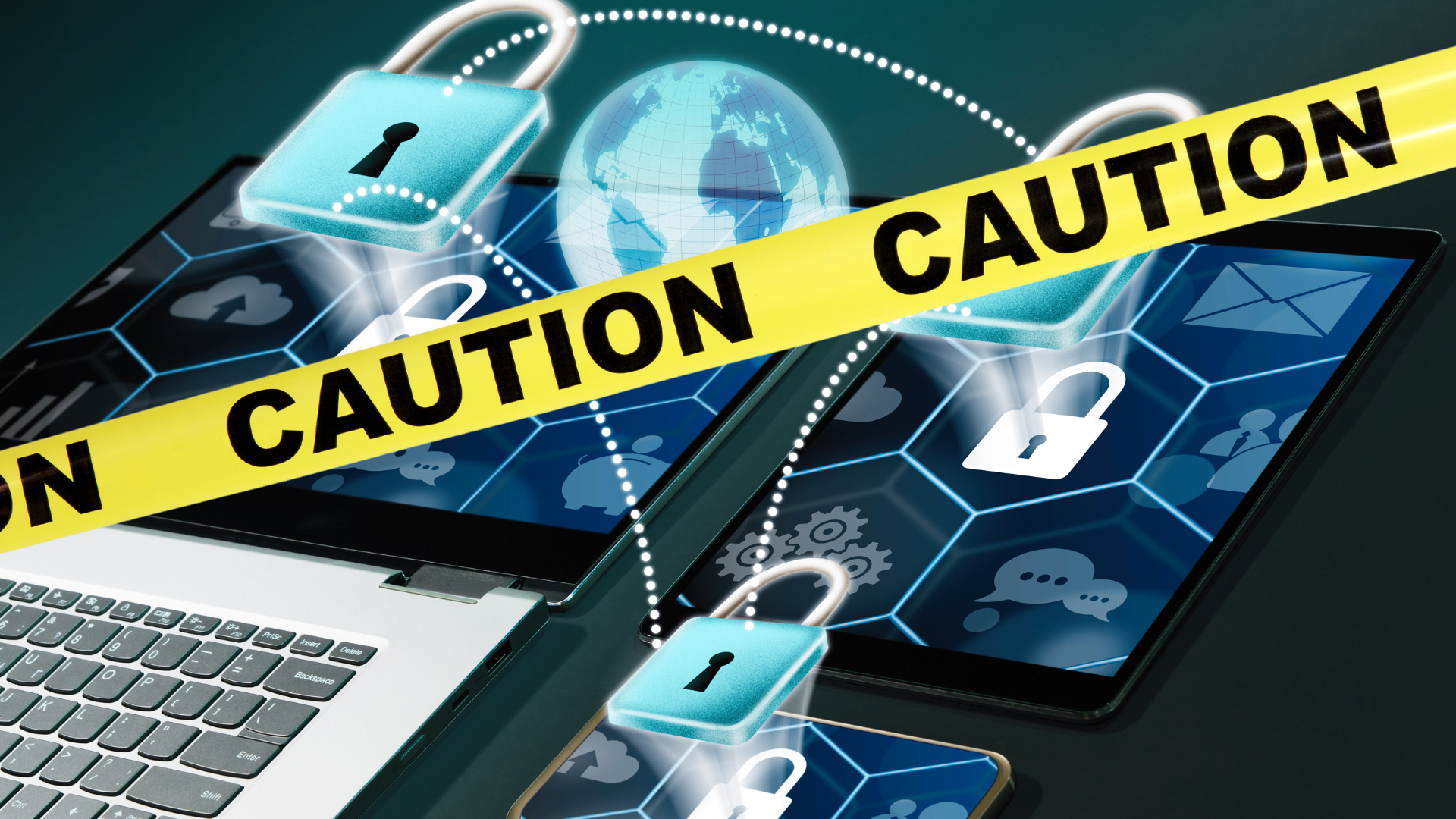What Does “Cybersecurity” Really Mean?
Within our digital world, cybersecurity is more important than ever, and it’s everyone’s responsibility to ensure both personal AND professional safety. For U.S. government employees, the stakes are even higher. But what exactly is cybersecurity? At its core, cybersecurity involves protecting systems, networks, and data from cyberattacks. These attacks can lead to data breaches, financial loss, reputational ruin, and even threats to national security. Therefore, understanding cybersecurity is not just a technical matter — it’s a crucial part of your role as a government employee.

It Begins With YOU
Staying cyber safe means taking proactive steps to protect your information and devices. Think of the measures you take to keep yourself safe from intruders. Do you run tools such as LifeLock to guard your financial information and Social Security number from being used nefariously? There are many things you can do to lock down your own life.
First, always use strong, random passwords and change them regularly. Password managers can help you keep track of these. Experts from sources such as PCMag and Wired suggest tools like 1Password and BitWarden. Second, enable multifactor authentication (MFA) on all accounts that offer it. MFA adds an extra layer of security by requiring more than one form of verification. Using an authenticator app ensures that only you may enter the code required to unlock a site or account you’re trying to access. Many people are annoyed at the thought of having to take this step, but imagine the time and effort you’ll have to put in when you’re hacked, and a simple MFA step could have prevented that situation! Lastly, be cautious about the links you click and the attachments you open; phishing attacks are a common way hackers gain access to sensitive information.
Now Carry This Over to Your Government Role
When it comes to practicing cybersecurity basics, your responsibility extends beyond personal safety — you’re also safeguarding national assets. The GSA offers extensive guidance on all device and third-party protocols and mandates. Your agency’s or department’s leadership should be clearly communicating all standards and requirements to follow all government protocols regarding the use of government issued devices and networks.
Due to the proliferation of remote work, standards now apply to personal devices used for work. Best practices include regularly updating software, using approved security programs, and avoiding unauthorized downloads. As a government employee, you should also remember to report any suspicious activity or suspected security breaches to your IT department immediately. Trust us — they’d rather deal with multiple non-issues than to work in panic-mode to mitigate the issue that escaped someone’s attention. Finally, exercise extreme caution regarding the websites you visit. Enough said there!
Learning From Real-World Incidents
Just when you think you’re safe, right when your false sense of “security” make you think nobody’s watching — BOOM! BUSTED! Here’s a recent example: Proton revealed that thousands of U.S. political staffers had their personal details leaked on the dark web. Proton analyzed 16,543 e-mail addresses and found that 3,191 were at risk. This was due to bad internet security practices, such as using official e-mail addresses to sign up for various services (some of them quite inappropriate!). This incident underscores the need for vigilance and good cybersecurity habits among government employees.
Never take for granted that a third-party provider is completely secure. Assume the worst, take precautions, and put your agency or department first with your online behavior. This may sound like a scolding parent or guardian, but this is serious stuff.
Boost Your Cybersecurity Knowledge With CISA Training
To help you stay ahead of cyber threats, the Cybersecurity and Infrastructure Security Agency (CISA) offers valuable training resources. Their Federal Virtual Training Environment (FedVTE) provides free, online and on-demand cybersecurity training. From beginner to advanced levels, you can strengthen your skills at your own pace. These courses are aligned with the NICE Cybersecurity Workforce Framework, ensuring they are relevant to your role.
Conclusion
Cybersecurity awareness should be commonplace. It’s everyone’s responsibility. By understanding the basics of cybersecurity, keeping yourself cyber safe, and adhering to best practices with government devices and networks, you play a crucial role in protecting yourself and our nation. Remember, the consequences of poor cybersecurity habits can be severe, as evidenced by the Proton e-mail addresses incident. Take advantage of training resources like those offered by CISA to stay informed and prepared. Your proactive efforts can make all the difference.
Your commitment to cybersecurity is a commitment to national security.
The multi-faceted nature of Susan Powell’s professional background paints the picture of a lifetime learner who has always taken full control of her career path and decisions to apply her learning experiences in the most productive ways possible. Susan has brought her passion for writing and communications to every career upgrade and role, which helped her to secure the Marketing Director position for a cybersecurity company that she holds today. Fueled by her continued enthusiasm for earning applicable certifications, she continues to develop her marketing prowess and channel partner marketing skills. This former elementary teacher-turned-marketer is still a happy work-in-progress.




Leave a Reply
You must be logged in to post a comment.